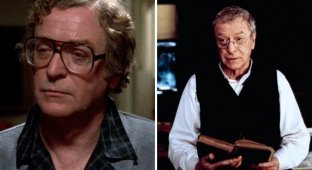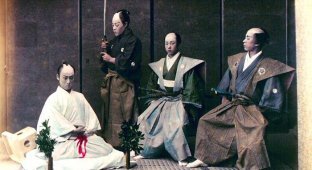Some films irritate historians to no end because they get history so, so wrong.
The Last Samurai (2003) 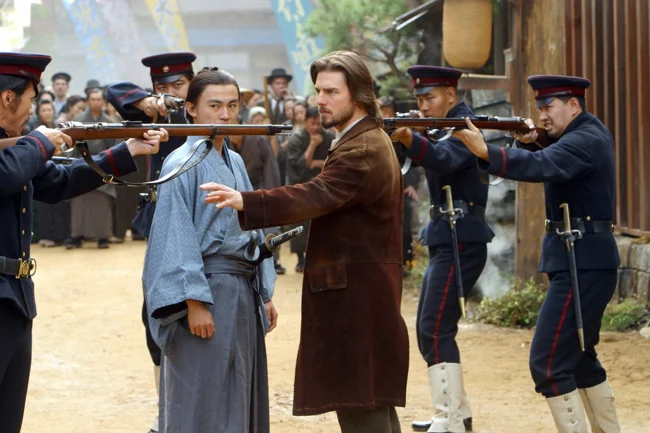
Crowded theaters, 41 award nominations, and the title of one of the most talked-about films of the year—Edward Zwick's "The Last Samurai" has received a ton of negative press from historically literate citizens. I didn't like the film's depiction of the Japanese countryside, the samurai and their portrayal, or the Emperor of Japan and his inconsistency with the image.
Tom Cruise's character, Nathan Algren, his inspiration, Jules Brunet, and the way his story was distorted beyond belief in the Japanese mountains, spiced up with drunken ravings. Overall, historians dug deep and unearthed almost nothing but negativity. Citizen film critics received the film in mixed reviews, split 50-50. They weren't digging into historical holes, but into cinematic ones, analyzing the production, plot, and actors. Over the years, they dug deeper and discovered more positivity, with 68% positive reviews.
Audiences, however, were much more generous in their assessments and reviews; Nathan Algren's story was gripping and impressive. The production, along with the cinematography, actors, dialogue, poignant music, and battle scenes, fell into the category of "very cool." Now, the same controversy persists: those in the know recommend familiarizing themselves with Japanese history, while the neutral, or mass, audience says they're watching a feature film, not the History Channel.
Gladiator (2000) 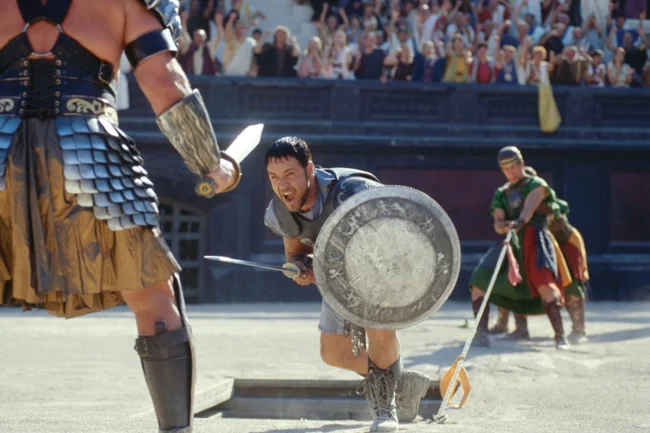
Ridley Scott's "Gladiator" has thoroughly fueled the anger of historically savvy citizens. A new subgenre even briefly emerged among them, where historians competed in witty attacks on "Gladiator" with rotten vegetables. Juicy headlines filled the front pages of newspapers and magazines: "What is Ridley Scott and his Gladiator lying about?" or "Gladiator is one of the most historically inaccurate films ever made."
They criticized the screenwriters, where everything was thrown into disrepute—even the colors of Rome's power, horse stirrups, which didn't exist at the time—in other words, every seemingly trivial detail was hurled at the authors as plot holes. Meanwhile, film critics, far from knowledgeable about history, received Ridley's production quite favorably in the year of its premiere, and over the years have even sung an ode to Maximus and company. 79% positive reviews, with an average rating of 7.4 stars—a very high result, as for those accustomed to dismissing everything and everyone as manure.
And "Gladiator" has long been a favorite among viewers. Yes, in the case of "Gladiator," the debate between experts and viewers runs into a dead end of misunderstanding, as does the perception of a work of art with historical events.
Braveheart (1995) 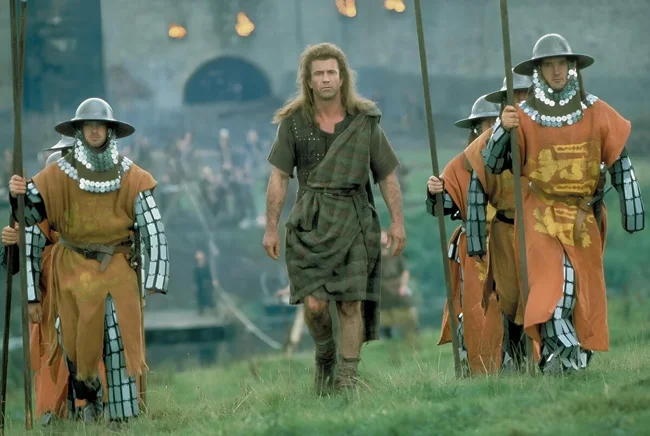
The story of Scotland's struggle for independence against the British made a splash in cinema in 1995, where historians had plenty to unpack. They were well-versed, some even wrote treatises, and then, like a blow to the knowledgeable jaw, articles about the film's historical inaccuracies began appearing en masse.
Director, screenwriter, and lead actor Mel Gibson were pelted with all sorts of criticism: the use of face paint on the warriors, King Edward wasn't a pagan and didn't die during Wallace's execution, William and Isabella's affair never happened, Wallace wasn't betrayed by Robert the Bruce's father, and where is the famous Stirling Bridge anyway? These are just a few of the complaints; there were others. However, the goal wasn't to please historians. However, the film even managed to please film critics, who warmly welcomed Mel's direction and his clever placement of accents.
The characters, even the supporting ones, were praised, and the film is now considered one of the top productions in the genre by critics. The film received 10 Oscar nominations and won five, including Best Picture and Best Director. Audiences, for the most part, have always supported Mel; "Braveheart" appears on many recommendation lists and top lists.
Troy (2004) 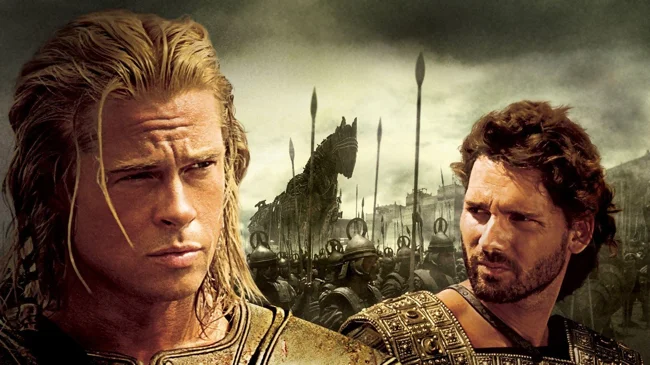
Homer's epic poem "The Iliad" has rekindled public interest centuries later and has become the subject of detailed analysis and comparison with Wolfgang Petersen's film. It wasn't Homer, historians cried, "The Iliad was distorted, the Trojan hammer was thrown into the mix." Where did these screenwriters even learn their craft?
Experts also scrutinized the plot components and found discrepancies in the weapons, armor, and costumes, architectural inaccuracies, and even misplaced household items. The plot, too, had been slaughtered in the Trojan meat grinder. Articles like "Homer vs. Hollywood" and "How to Film and Ineptly Distort the Original" were wildly popular after the premiere of Troy. One would think Petersen would have trouble sleeping after this, but no, he slept soundly, for he had no intention of toeing the historians' toes, and no one forbade him from interpreting Homer freely in a work of fiction. Critics grumbled, but significantly less so than historians.
As for audiences, everything went well with "Troy" from the premiere, with the film earning high ratings from the very start. "Large-scale, cool, captivating, with top actors and production values"—that's what they said at the premiere, and that's how many people speak of "Troy" today.
Alexander (2004) 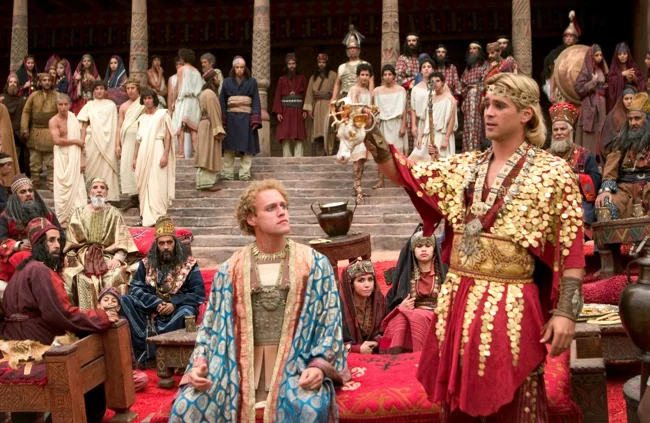
Why "Alexander" shouldn't be seen by anyone with a history background—these were the headlines that filled the press during the premiere and in the years that followed, savaging Oliver Stone's production. Critics agreed with the historians, shaming Stone's creation. The film received six Golden Raspberry Award nominations.
Everyone criticized it, and the actors were especially targeted. Jared Leto's performance was trampled, as was Val Kilmer's on-screen efforts. Angelina Jolie also received criticism. Colin Farrell fell into disfavor. Historians found numerous inaccuracies in the characterizations, his actions, and the time period. To this day, one can still find historians commenting on the inept production, the historical chaos in terms of the plot and the presentation of the on-screen characters.
On top of all this, "Alexander" was a resounding failure at the worldwide box office. Audiences saw a different picture. Yes, there were those who didn't like the film, but they were in the minority. On Kinopoisk, the film spent a brief time in the top 250, and on IMDb, the number of positive reviews is 65%. Over the years, nothing has changed for historians; a whopping 84% of negative reviews from film critics are considered trash.
King Arthur (2004) 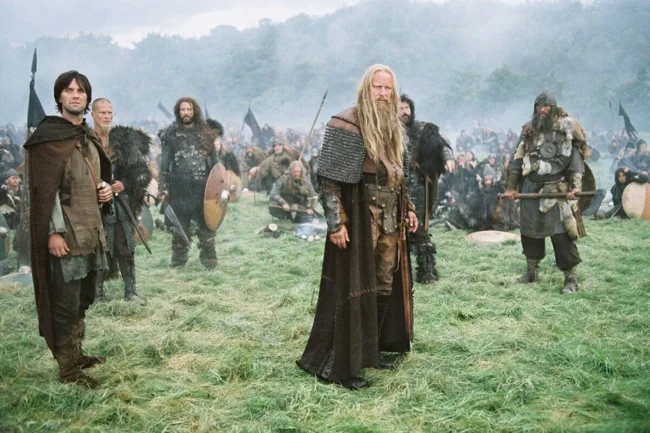
Antoine Fuqua's "King Arthur" failed to resonate with historians—or rather, it did—but only negatively. Experts rejected the loose interpretation of characters who bore only a tenuous connection to their historical counterparts, the genre hodgepodge, the plot confusion, and the chaotic choice of weapons and costumes. The dialogue, reminiscent of a kindergarten sitcom, was torn to shreds.
Critics unburdened by historical background helped, demolishing the production, plot, battle scenes, and actors, calling their performances frankly weak. But the fact is, Fuqua wasn't making an authentically historical epic; in interviews, he repeatedly emphasized why he combined several eras and genres and why he portrayed the characters the way he did. He made no pretense of teaching a history lesson to viewers, much less to expert minds.
Most viewers perceived the production in a similar way; for them, "King Arthur" served its purpose quite well as an entertaining film, with plenty of room for emotion; some were even captivated by the action. To this day, opinions on the film among historians and viewers diverge like blocks of ice on a frozen pond.
Kingdom of Heaven (2005) 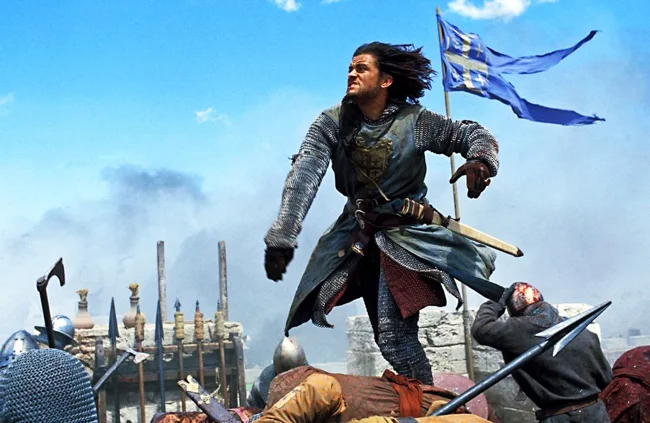
How much historical truth is in the film "Kingdom of Heaven"? This question has been asked by historians as they analyze Ridley Scott's production. Scott was criticized for his absurd conflation of times, events, and characters, which, according to experts, looked like a profanation to those too lazy to open a history book.
The characters were picked apart, and after skeletons were pulled out, some were torn apart for their inconsistency with historical figures. Orlando Bloom was deemed completely unsuitable for the role of Balian. As usual, they criticized the costumes, weapons, armor, and the warriors' appearances, which in places seemed out of place for the period. Critics added their two cents, or rather, their rusty two cents, and criticized Scott's production, saying it was drawn out, the plot sagged, the characters were cardboard, and the dialogue was wooden.
Audiences had a different, and quite positive, picture. In its heyday, "Kingdom of Heaven" reached the top 250 on Kinopoisk, receiving overwhelmingly positive reviews. On IMDb, the positive ratings are over 68%. The film reached the top of the historical genre, and the strong cast delighted, even impressed, audiences.
Apocalypse (2006) 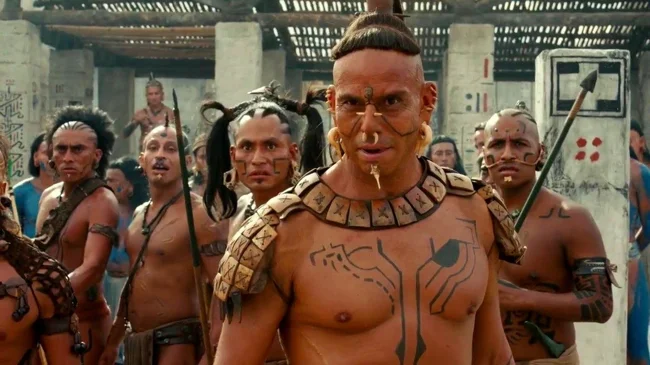
Needless to say, Mel Gibson knows how to stir up the public with his films. Some people revel in his performances, while others angrily rant about how Gibson rewrote history and made such a deceitful film. The original "Apocalypto" is a film that has truly inflamed some historians.
There were various complaints, the main one being why he portrayed the Mayans as so bloodthirsty, with such horrific sacrifices. Were the Mayans really such brutal savages? No, they said. The debate continues to this day. Incidentally, one of the particularly offended communities filed a complaint against Gibson, even going to court, but their arguments were rejected and they were sent to atone for their sins at Kukulkan. And what about Mel Gibson? He didn't even comment on all these efforts; he was making his own film, which the vast majority of viewers enjoyed. It left a lasting impression, and the crowd was delighted.
The film was in the top 250 on Kinopoisk for a long time, peaking at a lofty 18th place. It was also at the top of IMDb, where it still has over 75% positive reviews. "Apocalypse" appears on various lists and ratings, including among the best films in the genre, as well as among those everyone should see. This film will undoubtedly continue to find its audience.
Add your comment
You might be interested in:













